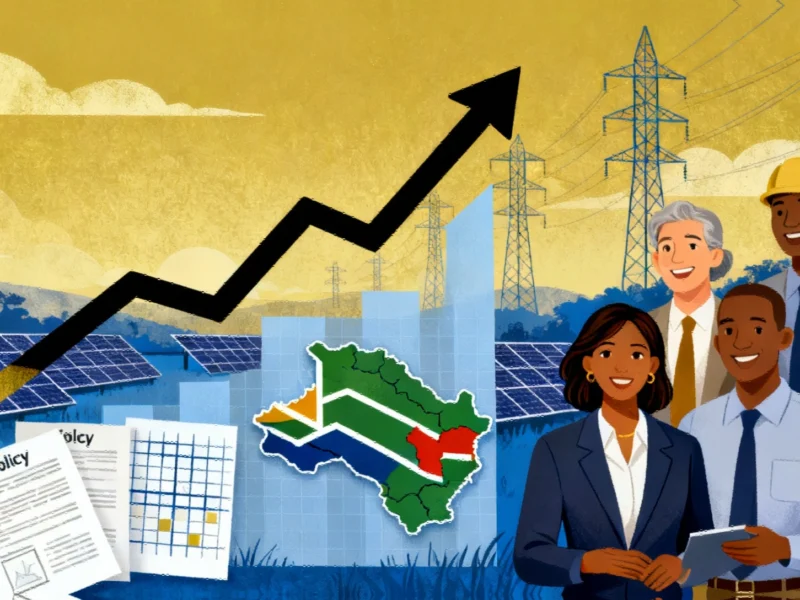Business Confidence Reaches 2024 Peak
South Africa’s business confidence index has climbed to 121.1 in September, marking the highest level recorded this year according to the South African Chamber of Commerce and Industry. This upward trajectory from August’s 120 index points signals a significant shift in economic sentiment, particularly within the nation’s evolving energy landscape.
The Energy Council of South Africa attributes this growing optimism to tangible progress in market reforms, infrastructure development, and investment mobilization. Energy Council CEO James Mackay emphasizes that “the steady recovery in business confidence signals that reforms are taking root,” noting that energy has become a central driver of this positive sentiment following the eradication of structural loadshedding.
Legislative Milestones Reshaping Investment Landscape
Recent legislative achievements, including the promulgation of the Electricity Regulation Amendment Act, are fundamentally transforming how investors perceive South Africa’s energy sector. These regulatory advancements are creating new opportunities for digital infrastructure investment and technological integration within the energy market.
Mackay highlights that “we are starting to see the alignment between policy certainty, investment appetite and delivery on the ground.” This alignment comes at a critical time as global power grids face increasing demands from technological advancements and digital transformation.
Capital Mobilization and Infrastructure Development
South African businesses are sitting on record cash reserves of R1.8-trillion, according to the South African Reserve Bank’s September Quarterly bulletin. The Energy Council believes growing confidence and stability in public debt will stimulate the release of these reserves, accelerating economic growth and energy sector investment.
The council is prioritizing delivery support for the South African Wholesale Electricity Market scheduled for April 2026, alongside timely expansion of transmission infrastructure through 2030. These initiatives are particularly relevant given broader industry developments in digital infrastructure and smart grid technologies.
Data Transparency Driving Investment Decisions
Through collaborative projects like the Energy Data and Modelling South Africa initiative and the Energise Mzansi communications campaign, the Energy Council is championing data transparency to build business confidence. This approach aims to unlock a capital investment portfolio of R2-trillion over the next decade.
Mackay notes that “we have an opportunity to convert optimism into momentum,” emphasizing that energy remains the backbone of economic growth. The council’s work aligns with ongoing sector reforms that are creating new opportunities for technological integration and digital transformation.
Industrial Demand and Economic Growth
Increased productive electricity demand represents another critical driver for maintaining energy sector investment and reform momentum. Recent policy statements by the Department of Electricity and Energy regarding Pricing Policy and industrial growth stimulation further support the positive outlook for the sector.
These developments occur against a backdrop of global market trends affecting energy security and industrial strategy worldwide. South Africa’s approach demonstrates how policy certainty and collaboration can overcome implementation challenges.
Future Outlook: From Energy Security to Economic Renewal
With continued reform, investment, and collaboration, South Africa stands to achieve both energy security and broader economic renewal. The country’s energy transformation is occurring alongside significant technological innovation in monitoring and management systems that could further enhance sector efficiency.
Mackay concludes that “energy remains the backbone of economic growth and the vehicle through which our economy can achieve its 3.5% growth ambition.” The convergence of energy reform, digital transformation, and economic policy creates a unique opportunity for South Africa to establish itself as a leader in modern energy market development.
This article aggregates information from publicly available sources. All trademarks and copyrights belong to their respective owners.



